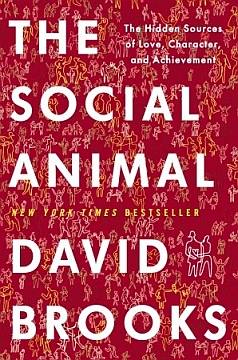- HOME
- INTRO TO THE FORUM
- USE AND MISUSE
- BADLY WRITTEN, BADLY SPOKEN
- GETTING
TO KNOW ENGLISH - PREPARING FOR ENGLISH PROFICIENCY TESTS
- GOING DEEPER INTO ENGLISH
- YOU ASKED ME THIS QUESTION
- EDUCATION AND TEACHING FORUM
- ADVICE AND DISSENT
- MY MEDIA ENGLISH WATCH
- STUDENTS' SOUNDING BOARD
- LANGUAGE HUMOR AT ITS FINEST
- THE LOUNGE
- NOTABLE WORKS BY OUR VERY OWN
- ESSAYS BY JOSE CARILLO
- Long Noun Forms Make Sentences Exasperatingly Difficult To Grasp
- Good Conversationalists Phrase Their Tag Questions With Finesse
- The Pronoun “None” Can Mean Either “Not One” Or “Not Any”
- A Rather Curious State Of Affairs In The Grammar Of “Do”-Questions
- Why I Consistently Use The Serial Comma
- Misuse Of “Lie” And “Lay” Punctures Many Writers’ Command Of English
- ABOUT JOSE CARILLO
- READINGS ABOUT LANGUAGE
- TIME OUT FROM ENGLISH GRAMMAR
- NEWS AND COMMENTARY
- BOOKSHOP
- ARCHIVES
TIME OUT FROM ENGLISH GRAMMAR
This section features wide-ranging, thought-provoking articles in English on any subject under the sun. Its objective is to present new, mind-changing ideas as well as to show to serious students of English how the various tools of the language can be felicitously harnessed to report a momentous or life-changing finding or event, to espouse or oppose an idea, or to express a deeply felt view about the world around us.
The outstanding English-language expositions to be featured here will mostly be presented through links to the websites that carry them. To put a particular work in better context, links to critiques, biographical sketches, and various other material about the author and his or her works will usually be also provided.
Understanding the human mind and the roots of social behavior
Told with dry wit laced with modern insights in brain science and sociology, David Brook’s The Social Animal: The Hidden Sources of Love, Character, and Achievement (Random House, 448 pages) is an engaging case study of how the unconscious mind shapes the way modern-day people live and relate to other people. It chronicles the life cycle of a fictional couple in the United States, Harold and Erica, from their formative years all the way to their subsequent meeting and courtship, marriage, family life, and pursuit of their respective careers.

Brooks, an op-columnist of The New York Times who writes on the social sciences and psychology, uses Harold and Erica’s life story to buttress his personal theories about social behavior, particularly (1) that reason is often subverted by genetically ingrained emotions and biases, (2) that social problems can be solved not by money but by cultural remedies, and (3) that the class divide is created not by money or power but by intelligence, deportment, and personal taste.
“This is not a science book,” says Brooks about The Social Animal, which has been in the US bestseller lists since its publication last March. “I don’t answer how the brain does things. I try to answer what it all means. I try to explain how these findings about the deepest recesses of our minds should change the way we see ourselves, raise our kids, conduct business, teach, manage our relationships and practice politics. This story is based on scientific research, but it is really about emotion, character, virtue and love.”
Reviewing The Social Animal for Amazon.com, Walter Isaacson, CEO of the Aspen Institute and former chairman of CNN, says that Brooks “has written an absolutely fascinating book about how we form our emotions and character” and that the book’s exploration of the workings of the unconscious mind “makes the recent revolution in neuroscience understandable.” On the other hand, New York University philosophy professor Thomas Nagel, reviewing The Social Animal for The New York Times, describes the book as “really a moral and social tract.” He observes that Brooks lacks the ability to create characters that compel belief, such that Harold and Erika don’t come to life despite the author’s earnest attempt to describe their psychological depths. “They and their supporting cast are [just] mannequins for the display of psychological and social generalizations,” Nagel says.
Read Walter Isaacson’s review of David Brooks’s The Social Animal in Amazon.com now!
Read Thomas Nagel’s “David Brooks’s Theory of Human Nature” in The New York Times now!
ABOUT THE AUTHOR:
David Brooks is a Canadian-born political and cultural commentator who writes an op-ed column on the social sciences and psychology for The New York Times. He has been a senior editor at The Weekly Standard and a contributing editor at Newsweek and the Atlantic Monthly. He has previously written two books, Bobos In Paradise: The New Upper Class and How They Got There and On Paradise Drive: How We Live Now (And Always Have) in the Future Tense.







